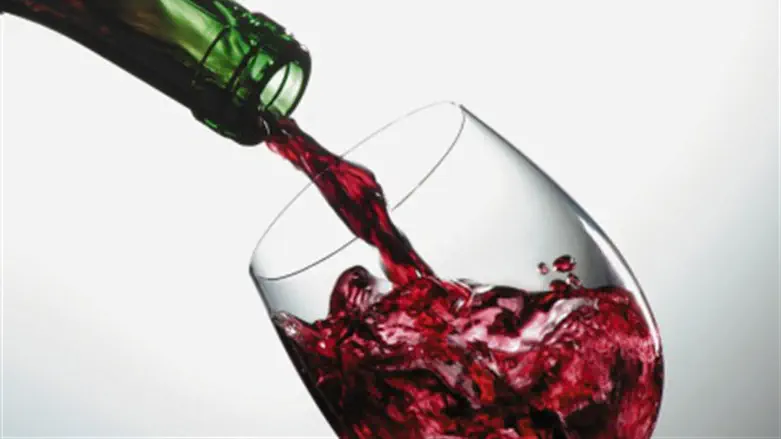
Often times, when a person consumes more wine than he or she is used to - as often occurs during the Purim holiday - they suffer side effects like hangovers, headaches, and in extreme cases, dehydration.
According to recent studies, however, the problem does not necessarily stem from the quantity of wine itself as much as lack of knowledge how and when to drink.
A study published by the Davidson Institute states that only about 20 percent of the alcohol we drink passes directly into the bloodstream and reaches the brain in the minutes immediately following the wine's consumption. The remaining eighty percent reaches the bloodstream through the intestines, hence the great importance of eating prior to drinking.
When we drink alcohol after eating, food in the stomach "competes" for space in our intestines with the alcohol being absorbed into the blood, and is therefore absorbed slowly. On the other hand, when drinking on an empty stomach the blood alcohol level rises much faster, in absence of competition. Additionally, vasodilation can lead to internal heat loss, temporary lowering of heart rate and blood pressure, and even dehydration.
The study may be relatively new but the knowledge is not new. The Jewish people have known this for thousands of years before the studies. The custom of eating beef on Purim is already mentioned in the ancient halakhic arbitrators, and the Terumat HaDeshen also notes it as obligatory.
It is important to drink the wine only after the main meat course. The fats and protein in the soft, choice calves' meat, produced exclusively from Angus and Herford varieties, are a healthy and tasty base for drinking wine during the rest of the meal, allowing a successful Purim feast and full functioning until the day's end.